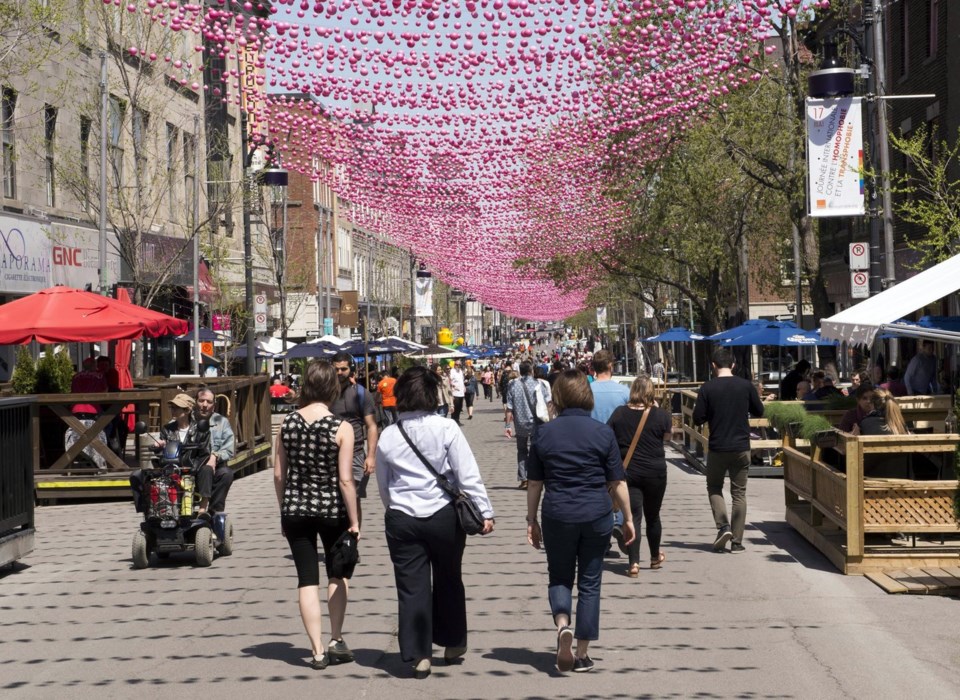MONTREAL ŌĆö Montreal's administration announced on Wednesday it is going to immediately modify a borough's noise bylaw to protect entertainment venues and bars from noise complaints, after a court this week ordered a historic music hall in the city's Plateau neighbourhood to pipe down.
In a decision released Monday, the Quebec Court of Appeal ordered La Tulipe ŌĆö which opened its doors more than a century ago ŌĆö to ensure no noise from its sound equipment is audible in a neighbouring building. After losing the court case brought by that neighbouring building's owner, La Tulipe announced Tuesday it was closing.
ŌĆ£It really calls into question the survival of concert halls in the Plateau, no doubt, but also elsewhere in Montreal in relation to other bylaws,ŌĆØ Plateau-Mont-Royal borough Mayor Luc Rabouin told reporters at a news conference on Wednesday.
ŌĆ£There is one person who hears noise from a concert hall and who succeeds in getting a ruling that threatens the survival of a cultural institution with years of history,ŌĆØ he said. ŌĆ£How could La Tulipe or any other concert hall continue its activities if we canŌĆÖt hear any noise in an adjacent room?ŌĆØ
Rabouin said the court's ruling was based on an interpretation of one of the borough's bylaws that was intended to be used for disputes between neighbours, not to shut down music venues. The bylaw in question relates to noise prohibited indoors and outdoors, and with the change to be made Thursday, music halls, bars and restaurants will be exempt.
In a statement posted to its website Tuesday, La Tulipe says it has suffered enormous financial losses and amassed hefty legal fees. In 2023, Quebec Superior Court had ordered the club to build a soundproofing wall to prevent noise from entering the neighbouring building. But the statement from La Tulipe says it could not proceed with the work because the neighbour appealed the decision.
"La Tulipe, a heritage venue built in the early 1900s, has lost its status as a cultural jewel, as well as its economic value. With this ruling by the Quebec Court of Appeal, the future of culture in Montreal is at stake ŌĆö because no venue or concert hall is now safe," the statement reads.
The property attached to La Tulipe had been used as a warehouse before 2016, and the city concedes it mistakenly granted the current owner a permit to convert the commercial space into residences.
Rabouin said it will not be a free-for-all, and the city will continue to enforce a separate bylaw that focuses on measuring actual noise levels.
Despite the promised changes Jon Weisz, executive director of an association that represents small music venues in Quebec, says there is more work to be done, including clarifying regulations about how noise can be objectively measured and what constitutes a disturbance.
He sees the city's action as a "a good first step," and notes that venues have been pushing to change the bylaw for years. "It took a crisis like this for them to actually act," he said. "It is a little bit frustrating."
City councillor Ericka Alneus, who is responsible for culture, heritage, gastronomy and nightlife, said the city would be rolling out an expanded program to support soundproofing for venues like La Tulipe next month. Also in October, she said, the city will adopt its long-promised nightlife policy.
This report by The Canadian Press was first published Sept. 25, 2024.
Joe Bongiorno, The Canadian Press


